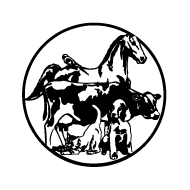Keeping the Senior Horse Healthy
With good care, many horses live well into their twenties or even thirties.
Their basic care needs to include all the steps involved in managing younger horses, with some extra attention to handling the senior horse's changing needs.
Grooming
As with any horse, the older equine should be seen daily. A light grooming is a good way for owners to keep up with injuries, weight changes, and problems with teeth or hooves.
Housing
Older horses often end up at the bottom of the dominance structure within a herd, with younger animals blocking hay and water supplies.
Senior horses may need to be turned out in their own paddocks, either with one or two friends or within sight of companions, to allow adequate intake of hay and feed.
They may also get cold more easily than younger horses, not only because of thin body condition but because more aggressive horses may prevent them from accessing shelter. Blanketing, turnout with fewer horses, or an increase in the older horse's hay ration may be solutions.
In hot weather, access to a breezy shaded area will help prevent overheating.
Exercise
Exercise should be encouraged if senior horses are able to tolerate it. In most cases, turnout is preferable to stall confinement, taking care that younger pasture buddies are not allowed to run an older horse to exhaustion.
For ridden or driven exercise, warm-up and cool-down are essential. Older horses lose muscular strength and fitness, and each horse's exercise program should be tailored to the individual's condition.
While a younger horse can sometimes be idle during the week and perform moderately strenuous exercise on a weekend with few ill effects, this program is likely to result in stiffness, pain, or more serious consequences for the out-of-condition older horse.
Wellness check
Owners should schedule a "wellness check-up" at least once a year. As part of an exam, a veterinarian can do blood tests to determine thyroid function and other indicators of health.
Senior horses also need to stay current on necessary vaccinations, even though they may not travel to shows or rides, and are therefore not exposed to many other horses. Check with your veterinarian to see what protection is needed in your area.
Feet
It may be tempting to skip farrier appointments for older horses since they aren't working or traveling, but these animals need to stay on a regular schedule of trimming or shoeing regardless of activity.
Overgrown feet are more susceptible to problems like white line disease, and proper hoof angle can ease the discomfort of navicular disease. Cushing's syndrome and other metabolic disorders are often linked to laminitis, and regular farrier care can keep victims of these diseases more comfortable.
Pain
Senior horses may suffer from arthritis, gastric ulcers, navicular disease, and other conditions that produce chronic pain. Dealing with pain can impact appetite and cause horses to lose weight. A veterinarian can usually diagnose and treat the cause of chronic pain. Because some drugs affect the function of kidneys and digestive organs, a veterinarian's guidance is suggested.
By Kentucky Equine Research - Last updated 16 November 2012
